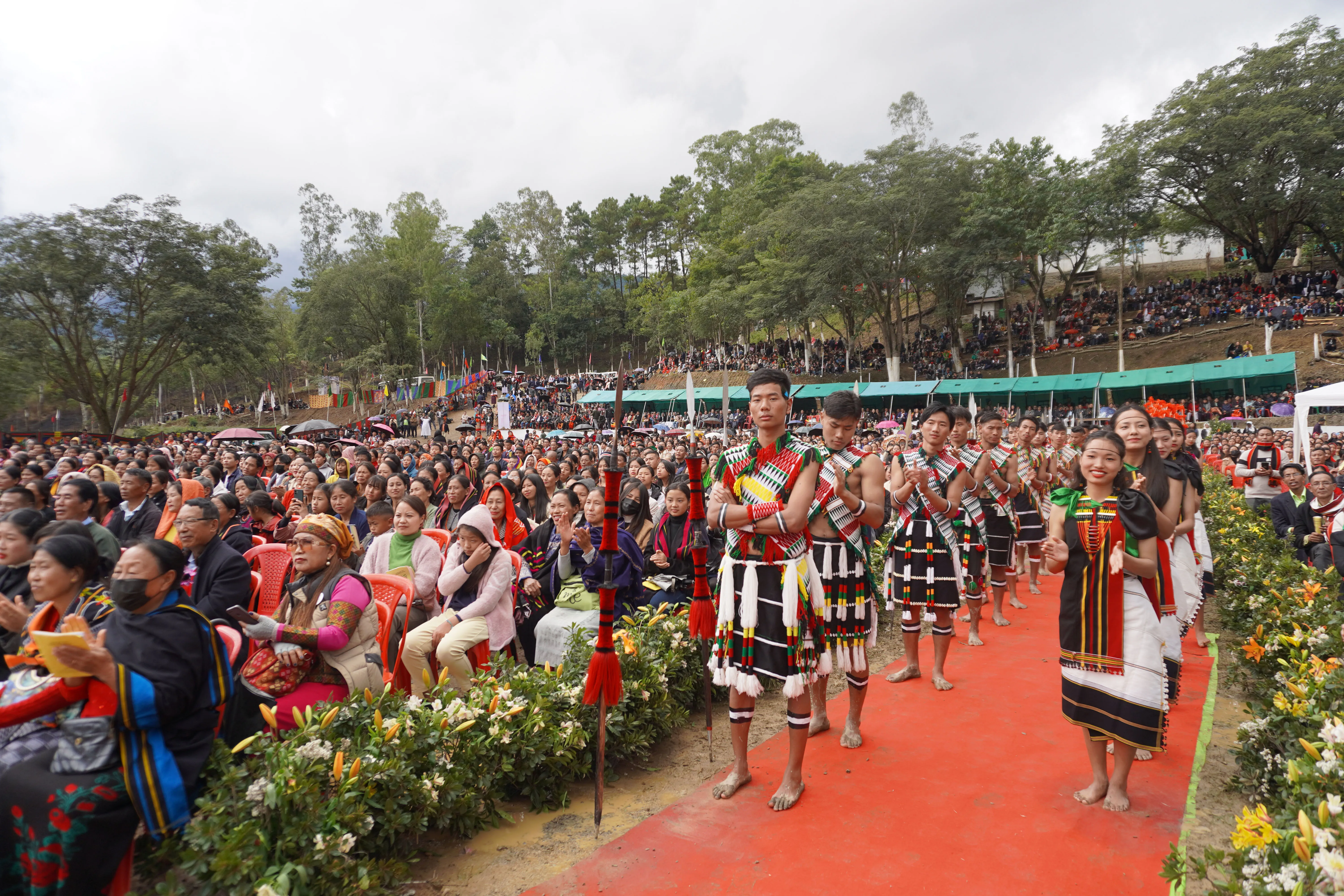 Catholic faithful offer prayers during an Ash Wednesday Mass at St. Mary’s Basilica in Secunderabad, the twin city of Hyderabad in India on Feb. 14, 2024. / Credit: NOAH SEELAM/AFP via Getty Images
Catholic faithful offer prayers during an Ash Wednesday Mass at St. Mary’s Basilica in Secunderabad, the twin city of Hyderabad in India on Feb. 14, 2024. / Credit: NOAH SEELAM/AFP via Getty Images
Bangalore, India, Mar 27, 2024 / 14:00 pm (CNA).
A watchdog group that monitors violence committed against Christians in India has released a study documenting 161 such crimes in the first 75 days of 2024.
These numbers may underestimate the number of crimes and acts of persecution committed against Christians in India, according to A.C. Michael, a Catholic and coordinator of the United Christian Forum (UCF), which released the report.
“These figures are based only on the complaints registered on our toll-free helpline number (1-800-208-4545) to report incidents of anti-Christian violence. The actual numbers will be certainly much more,” Michael told CNA on March 27.
“We feel frustrated that despite documenting and making public the shocking data regularly, there has been no response from the government nor any effort has been made to curb the steadily rising number of violent incidents,” he said.
Categorizing the 161 incidents, Michael listed 71 cases of detainment/arrest by the police, 18 incidents of social ostracization, 72 cases of physical violence, 15 cases of forced “reconversion,” one incident of a church being sealed, and another in which a church was torched, with mob violence being part of most of these incidents.
Violence and persecution against minority Christians, who account for only 2.3% of India’s 1.41 billion people (nearly 80% of whom are Hindu), have been on a steady rise since the Hindu nationalist Bharatiya Janata Party (BJP) rose to power under the stewardship of Prime Minister Narendra Modi after winning the 2014 national election. In May 2019, the BJP was reelected with an increased majority.
UCF had recorded only 147 incidents of violence against Christians in 2014, Michael said. The number of incidents went up to 177 in 2015, 208 in 2016, 240 in 2017, 292 in 2018, 328 in 2019, 279 in 2020, 505 in 2021, 599 in 2022, and 731 in 2023.
The UCF statement also highlighted the victimization of Christians in BJP-ruled Chhattisgarh state in central India, which reported “incidents with dignity of burial rights denied to Christian families.”
“Chhattisgarh, a state notoriously known for social ostracization of Christians, is the No. 1 leading state in assaults against Christians with 47 incidents of reported violence,” the UCF pointed out.
“Christians are being denied access to water from the community borewells of the village. Sadly, even dead Christians are not spared, as many were denied burial as per Christian rituals. Local [Hindu fundamentalist] villagers have been threatening to cremate the bodies as a final act of reconversion,” UCF decried.
Such blatant attacks on the Christians, Michael said, are rooted in BJP leaders’ anti-Christian rhetoric. He noted that Chhattisgarh Chief Minister Vishnu Deo Sai accused “Christian missionaries of carrying out religious conversion under the guise of providing education and health care facilities while warning to stop the practice.”
But, Michael pointed out, Christians in Chhattisgarh account for just 2% of the state’s 25 million people.
The UCF statement also highlighted the persecution of Christians in BJP-ruled northern Uttar Pradesh, which has a population of 231 million and “ranks second [among] states where Indian citizens are being persecuted for practicing Christianity.”
“There is clear evidence of state-sponsored harassment of Christians in this state as the police file false allegations of conversion against the pastors even for praying in birthday parties and other social gatherings. UCF helpline has recorded over 30 incidents of arrests and detentions of pastors under the UP Freedom of Religion Act,” the Christian Forum noted.
CNA has reported in detail how Father Babu Francis, social service director of Allahabad Diocese in Uttar Pradesh state, was jailed for over 80 days after being arrested on charges of false conversion in early October.
Similarly, CNA also reported about how Father Dominic Pinto, director of the Pastoral Centre of Lucknow Diocese, was arrested in February on a false conversion charge. Pinto was released on bail on March 13.
Of the 161 incidents recorded in the first 75 days of 2024, UCF pointed out: “There are 122 Christians who have either been detained or arrested on the false allegation of conversions.”
The UCF data was released on the eve of the March 22 National Day of Prayer that the Catholic Bishops’ Conference of India (CBCI) called for in the wake of increasing atrocities against Christians and religious polarization in the country.
Thousands of churches across the country held special prayers on the day with special holy hours, rosaries, and Stations of Cross in response to the CBCI appeal for “peace and harmony.”
Meanwhile, the 2023 year report of the Religious Liberty Commission of Evangelical Fellowship of India expressed anguish over “the alarmingly steep rise in the number of violent incidents against the Christian community.”
“The Indian political apparatus, its law enforcement agencies, and its justice system, specially at the level of villages and small towns, have been found wanting and slow in its responses despite urgent pleas for help from victims, church leaders, and civil society,” the report lamented.
[…]





